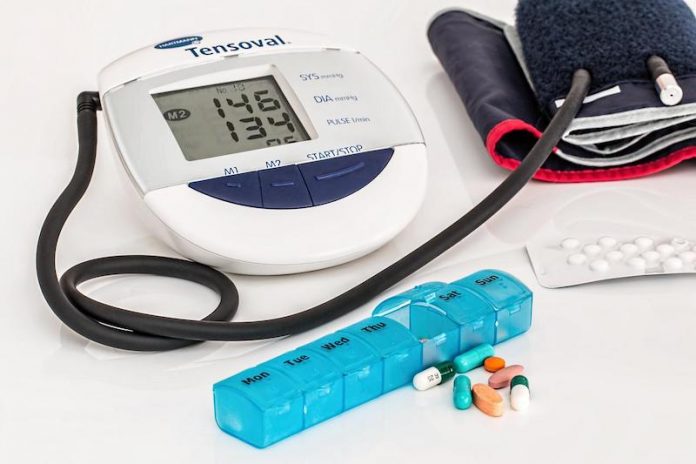
Scientists from Second Military Medical University found that the use of RAAS inhibitors, a class of blood pressure-lowering medications, reduced the risk of an aneurysm rupture by 18%.
The research is published in Hypertension and was conducted by Qinghai Huang et al.
A brain aneurysm can leak or rupture, causing bleeding into the brain (hemorrhagic stroke).
Most often, a ruptured brain aneurysm occurs in the space between the brain and the thin tissues covering the brain. This type of hemorrhagic stroke is called a subarachnoid hemorrhage.
These strokes account for 3-5% of all strokes, but a larger proportion of morbidity and mortality than other types of strokes.
In the study, the team examined more than 3,000 people with high blood pressure and brain aneurysms.
The body’s renin-angiotensin-aldosterone system (RAAS) includes hormones that affect blood pressure regulation, and dysregulation of the RAAS can lead to the development of high blood pressure.
Two components of RAAS have been shown to be involved in the development of intracranial aneurysms, and previous research has found that dysregulation of RAAS may also contribute to aneurysm rupture.
RAAS inhibitors, medications that block the effects of the RAAS, are often used to treat high blood pressure.
The team found that 32% of participants who took RAAS inhibitors had an intracranial aneurysm rupture, compared to 67% of those who used non-RAAS inhibitors.
Even among people with controlled high blood pressure, those who took RAAS inhibitors still had a much lower rupture risk than individuals who used non-RAAS inhibitors.
Our study highlights that using the proper high blood pressure drugs to achieve normalization of blood pressure may remarkably decrease the risk of a ruptured aneurysm.
Based on these findings, the researchers estimate that nearly 18% of ruptured aneurysms may be prevented if all patients with high blood pressure and intracranial aneurysms were prescribed RAAS inhibitors.
“These findings confirm previous studies indicating that—in addition to blood pressure control—smoking cessation and aggressive treatment of Type 2 diabetes may also help reduce the risk of aneurysm rupture.
If you care about high blood pressure, please read studies about teas that may help reduce high blood pressure, and common high blood pressure drugs may actually raise blood pressure.
For more information about stroke, please see recent studies about new way to prevent heart attacks, strokes, and results showing how to repair damaged brain after stroke.
Copyright © 2022 Knowridge Science Report. All rights reserved.



